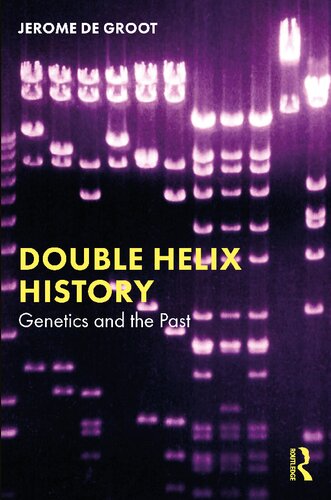

Most ebook files are in PDF format, so you can easily read them using various software such as Foxit Reader or directly on the Google Chrome browser.
Some ebook files are released by publishers in other formats such as .awz, .mobi, .epub, .fb2, etc. You may need to install specific software to read these formats on mobile/PC, such as Calibre.
Please read the tutorial at this link: https://ebookbell.com/faq
We offer FREE conversion to the popular formats you request; however, this may take some time. Therefore, right after payment, please email us, and we will try to provide the service as quickly as possible.
For some exceptional file formats or broken links (if any), please refrain from opening any disputes. Instead, email us first, and we will try to assist within a maximum of 6 hours.
EbookBell Team

4.4
92 reviewsDouble Helix History examines the interface between genetics and history in order to investigate the plausibility of ‘new’ knowledge derived from scientific methods and to reflect upon what it might mean for the practice of history.
Since the mapping of the human genome in 2001, there has been an expansion in the use of genetic information for historical investigation. Geneticists are confident that this has changed the way we know the past. This book considers the practicalities and implications of this seemingly new way of understanding the human past using genetics. It provides the first sustained engagement with these so-called ‘genomic histories’. The book investigates the ways that genetic awareness and practice is seemingly changing historical practice and conceptualisation. Linking six concepts – ‘Public’, ‘Practice’, ‘Ethics’, ‘Politics’, ‘Self’, and ‘Imagination – Double Helix History outlines the ways that genetic information, being postgenomic, the public life of DNA, and the genetic historical imaginary work on the body, on collective memory, on the historical imagination, on the ethics of historical investigation, on the articulation of history, and on the collection and interpretation of data regarding the ‘past’.
This book will appeal to researchers and students alike interested in DNA, genetics, and historiography.